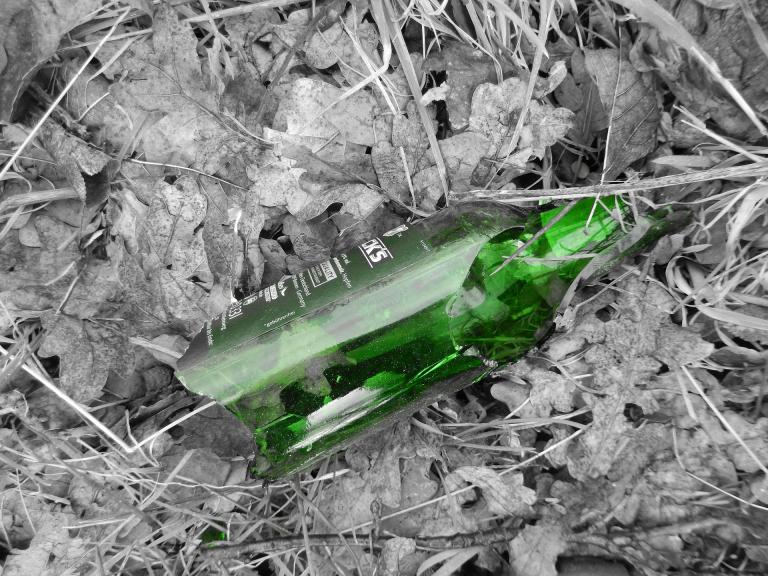I apparently don’t understand success. The formula for it is not, as I suggested, hard work + advantage but hard work + persistence. This is a typical line taken by self-help books, prosperity preachers and business seminars, so it’s not surprising that this was the view put forward by one of the commenters on my previous post.
Alright. So “persistence” is basically just an aspect of hard work – that this is kind of like saying “Air + oxygen = breath.” Generally you can take it for granted that the oxygen is an important part of what we’re referring to when we say “air.”
What we’re really left with is a very simple equation: hard work = success. So long as you put your nose to the grindstone and you keep on trucking you will receive a just reward.
Not only is this untrue, it’s also not a Christian sentiment. Mother Theresa’s much more useful dictum “God does not require that we be successful only that we be faithful,” is founded on a recognition that sometimes you can put in an awful lot of persevering hard work, and not reap much of a reward. This problem, well acknowledged by Scripture, has troubled theologians for millennia: why is it that some people who are slothful, bad and selfish seem to be showered in temporal blessings, while others who are prayerful, pious and good just get the shaft?
The fact that unearned advantages have as much impact on success as industry and perseverance is just so obvious that it seems bizarre to me that it even needs to be spelled out. Obviously, if there are two farmers and they both go out and labour long and hard in the field every day, and one of them has 100 acres of fertile land in a sheltered river valley, and the other is trying to eke out a living on a patch of marginal scrubland that’s subject to locust attacks, the first will almost certainly be more successful. In fact, he can probably afford to put in half the work and still get a better yield.
However, human pride is a many-headed hydra and there are always going to be people who want to take vainglorious credit for the unearned blessings that they receive.
The “prosperity gospel,” which claims that earthly rewards are the natural result of piety and virtue, appeals to those who are successful because it allows them to take their spiritual temperature by looking at their bank account. Instead of having to be troubled by all of those nasty cautions about how difficult it is for the rich to get into heaven, they can reassure themselves that if they are enjoying the good things of the earth it is because they’ve earned God’s favour.
Ahem.
I’ll let St. James speak to that: “Now listen, you rich people, weep and wail because of the misery that is coming on you. Your wealth has rotted, and moths have eaten your clothes. Your gold and silver are corroded. Their corrosion will testify against you and eat your flesh like fire. You have hoarded wealth in the last days. Look! The wages you failed to pay the workers who mowed your fields are crying out against you. The cries of the harvesters have reached the ears of the Lord Almighty. You have lived on earth in luxury and self-indulgence. You have fattened yourselves in the day of slaughter.” (James 5:1-5)
Notice here that James does not say “Well done you good and faithful rich, for your industrious perseverance has made you successful.” Nor does he pour out opprobrium on the poor workers for failing to stand up for themselves, for not working hard enough, for ‘allowing’ themselves to be taken advantage of. On the contrary, James just assumes outright that if you are successful in worldly terms, you got that way by exploiting someone else.
Nor is this assumption unique to James. It has deep roots throughout Scripture, and it’s the reason why Christ is so hard on the rich. The writers of the Bible understood, as today’s prosperity preachers do not, that one rises to earthly success mostly by trampling on the backs of the poor.
Even if you haven’t done this personally, or deliberately, it’s still a part of being in an advantaged position. It’s not simply a matter of personal guilt: if you look at Scripture, you’ll notice that themes of corporate and intergenerational guilt are woven throughout the Old Testament narratives. You and I weren’t around when our ancestors decided to enslave the Africans. We didn’t get a vote when smallpox infected blankets were passed along to the first peoples of North America.
But we reap the rewards of our forefathers’ crimes.
This is not a matter of hating our ancestry. I love European culture. I’m aware that we are the originators of the modern discourse on human rights, that we have invented technologies that have revolutionized the human experience, that other peoples rightly desire the longevity and good health that our advances in medicine can bring. The Western canon is full of works of breath-taking beauty, and there is much in our history of which to be proud.
But pride becomes deadly when it is not coupled with sobering humility and a willingness to own one’s faults. We achieved many great things, but we also wet the soles of our boots with innocent blood. We rose to power and wealth through hard work and industry… and also through enslavement, conquest, and genocide.
That’s not a history that we can go back and change – but we can take responsibility for the effects that it continues to have in the present day. We can acknowledge the reality of intergenerational poverty (a reality that studies have demonstrated time and time again.) We can stop pretending that there’s a level playing field, like somehow the peoples that we broke in our rise to power are to blame for the injuries that we inflicted. We can stop acting like somehow we’re the victims when those we have oppressed cry out. And we can work for justice – to make sure that the children of those who have toiled and died, unrewarded, to make our culture great will finally be enabled to share in the goods that their ancestors earned.
When we insist that we enjoy no privilege, no advantage, due to the evils that secured our cultural inheritance, we lie. It’s no different than if your father left you a factory and it came to light that he had been underpaying his workers for years. You can’t just say “Oh. That debt is erased. I owe you nothing, because I wasn’t the boss back then.” Their labour secured the profits that you inherited. They deserve fair wages, and if you withhold those wages then you are fattening your bank account at their expense. If you refuse to acknowledge the value of their labour, and pretend that all of the work was magically done, single-handed, by your dad you are thief and you will be accountable to God.
This is an essential aspect of social justice: that we can love our ancestors, yet still acknowledge that we have a duty to pay their debts. And if we don’t? If we go on enjoying our luxuries, insisting that we’ve earned them, and telling the unpaid labourer who sweats in our fields that he just has to work harder to earn his just reward?
Here’s what Christ has to say to one of these successful people: “Remember that in your lifetime you received your good things, while Lazarus received bad things, but now he is comforted here and you are in agony. And besides all this, between us and you a great chasm has been set in place, so that those who want to go from here to you cannot, nor can anyone cross over from there to us.” (Luke 16:25-26)
Image credit: pixabay
Stay in touch! Like Catholic Authenticity on Facebook:












